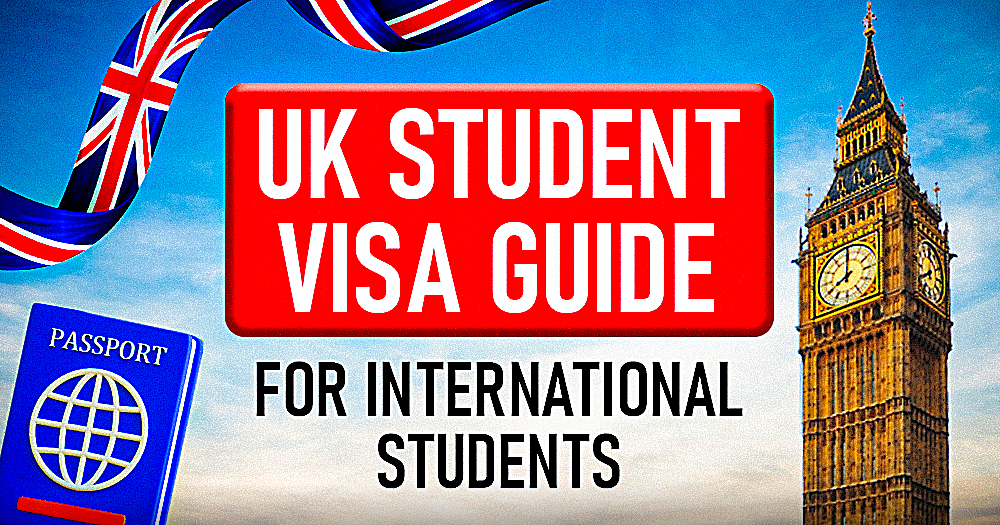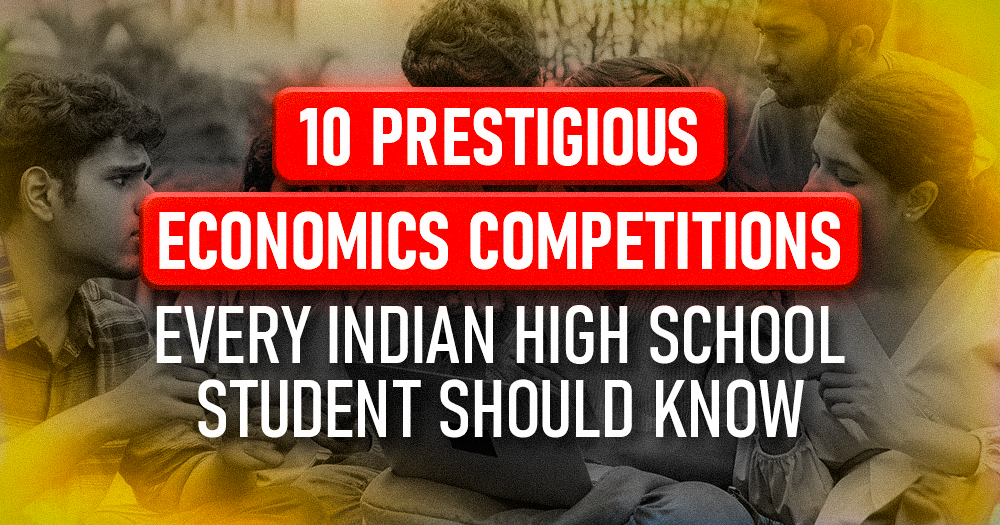A one-page resource to acquaint you with all the essential student visa requirements and application process for studying in the UK
The United Kingdom (UK) is a sought-after destination for international students, known for its prestigious universities and rich cultural heritage. If you have secured an admit to one such university, you next need to focus on acquiring a UK Student Visa.
This guide provides an in-depth understanding of the UK student visa process, covering types, costs, application timelines, required documents, and more.
What is the UK Student Visa?
A UK Student Visa is an authorization granted by the UK government, allowing international students to study in the country for a specific period. Different visa types are available based on the duration and level of the study program. Knowing these types and their requirements is crucial for a smooth UK student visa application process.
UK Student Visa Types
There are two primary types of UK Student Visas:
1. Student Visa (previously Tier 4 General Student Visa): For students aged 16 and above pursuing a full-time degree course in the UK.
2. Child Student Visa (previously Tier 4 Child Student Visa): For students aged between 4 and 17 studying in a UK independent school.
Eligibility Criteria
You are eligible to apply for the UK Student Visa if:
– You gave gained admission to a study program offered by a licensed student sponsors
– You have sufficient funds to cover your education and living costs
– You have sufficient knowledge of English
Reasons for UK Student Visa Rejection: How to Avoid Common Mistakes
Applying for a UK Student Visa can be a challenging process, and it is essential to follow the guidelines carefully to increase your chances of success. In this article, we will discuss some common reasons for UK Visa rejections and offer tips on how to avoid these pitfalls.
1. Submitting Inadequate Documents: Ensure that you provide original documents rather than soft copies or duplicates. Incomplete documents can also lead to student visa rejections, so double-check your application to make sure all required paperwork is included.
2. Failing the Credibility Interview (if required): A critical aspect of the UK Visa application process is the credibility interview. Thoroughly prepare for this interview to demonstrate your genuine intentions to study in the UK and meet the strict visa rules.
3. Insufficient Funds: A common reason for rejection is not meeting or maintaining the necessary funds in your account for at least 28 days. Ensure that you meet the financial requirements for your chosen courses and can cover living expenses during your stay.
4. Prior Visa Violations: If you have violated visa conditions during a previous visit, it may result in your application being denied. Always adhere to the terms of your visa and maintain a clean travel record.
5. Criminal Record: Visa refusal may occur due to past criminal records. Be honest about your history and provide any required documentation to support your application.
6. Missing ATAS Certification: For certain courses, an ATAS (Academic Technology Approval Scheme) certificate is required. Check if your course falls under this category and submit the necessary certification if needed on the following link:
[[Check if you need an ATAS certificate]]
7. Outdated or Irrelevant Financial Documents: Submitting old, expired, or non-parental financial documents can lead to rejection. Provide up-to-date and relevant financial evidence to support your application.
8. Mistakes in the Visa Application Form: Avoid a casual approach when filling out your visa application form, as mistakes can result in refusal or a delay of up to six months. Ensure that you accurately describe the purpose of your visa application, select the correct visa category, and clearly state your travel intentions.
9. Insufficient Relationship Documents: If you are traveling with dependents or a spouse or applying as a dependent or spouse, you must provide evidence of your relationship with the primary visa applicant. Failure to do so can result in rejection.
10. Inability to Respond to Home Office Requests: Timely responses to Home Office requests or queries are crucial. Ensure that you adhere to the given deadlines to avoid jeopardizing your visa application.
By being aware of these common reasons for UK Visa rejection, you can take proactive steps to ensure a successful application. Always double-check your paperwork, follow guidelines, and seek professional advice if necessary to increase your chances of securing a UK Student Visa.
Essential Documents for UK Student Visa Application
The UK student visa requirements include the following documents:
1. A currently valid passport
2. Proof of financial support for tuition fees, accommodation, and living costs
3. A Confirmation of Acceptance for Studies (CAS) from your UK educational institution
4. Valid ATAS Certificate (if required)
5. UK Visa Cover Letter
6. Birth Certificate
7. Tuberculosis testing receipt
8. Proof of English language proficiency (if applicable)
9. Two passport-sized photographs
10. Payment of the UK student visa application fees (approximately Rs 38,248)
11. Scholarship Letter/ Scholarship mentioned on CAS, if applicable
12. Proof of parental or other legal guardian consent and proof of your relationship with your parent/guardian if you are under 18.
Fees Involved
The application fee for both the Student Visa and Child Student Visa is £363.
Aside from this, you also need to pay a healthcare surcharge depending on your individual case. Click below to understand how much healthcare surcharge you need to pay:
[[Healthcare Surcharge Calculator]]
Once you figure out how much healthcare surcharge you need to pay, you can visit the following link to make the payment:
UK Student Visa Process: Step-by-Step Guide
The process of Visa application for the UK is a 6-step process. One of the deciding factors for the issuance of student visa in UK is the level of English proficiency. Non-native English speakers must provide proof of English language proficiency by taking one of the accepted tests including IELTS, TOEFL, and PTE. The minimum score depends on your chosen course and institution.
Assuming that you have satisfied this requirement, you are now advised to move further in your student Visa application.
The following is the order we would recommend you to follow:
1. Confirmation of Acceptance for Studies
The educational institute that you received admission from in the UK will issue the CAS once you accept an unconditional study offer. The CAS contains information about your course, tuition fees, and personal details. UK CAS letter processing time is typically five working days.
Each educational institute has their own process to issue CAS to students after they unconditionally accept the invitation to study in said institution.
Once you receive the CAS, you need to apply for the UK Student Visa within 6 months.
2. Writing the Cover Letter for UK Visa
While the cover letter would not be required right away to begin with the Visa process, it is essential that you begin working on it at an early stage as it could take a while to draft it. Therefore, we have included this as the second step in the Visa application process.
When preparing a cover letter for a UK student visa application, it is important to include the following key elements:
– Introduction
Start with a formal salutation and introduce yourself, including your full name and the purpose of the letter (i.e., applying for a student visa).
– Personal Background
Briefly provide relevant details about your educational background, including your academic qualifications and achievements. Highlight any previous experience or skills that are related to your chosen field of study.
– Intent
Clearly state your intention to study in the UK and mention the specific course or program you have been accepted into, including the name of the educational institution.
– Study Plan
Outline your study plan, including the duration of your course, the modules or subjects you will be studying, and your future career aspirations. Explain how studying in the UK will contribute to your academic and professional goals.
– Finances
Demonstrate your ability to financially support yourself during your studies in the UK. Include details about your funding sources, such as scholarships, savings, or sponsorships, and mention any financial documents you are submitting as evidence.
– Ties to Home Country
Emphasize your strong ties to your home country, such as family, property, or employment, to show that you have compelling reasons to return after completing your studies.
– Conclusion
End the letter with a polite closing statement, expressing gratitude for considering your application and requesting that the visa officer review your documents and grant you the student visa.
Remember to keep the cover letter concise, focused, and professional, and proofread it carefully for any grammatical or spelling errors.
3. Tuberculosis Testing
If you are an Indian who wishes to reside more than 6 months for any purpose in the UK, you need to take the tuberculosis test. You can choose among the list of tuberculosis centres in India from below:
[[Tuberculosis Testing Centres in India]]
4. UK Student Visa Online Application
Before filling the form, you need to have the following with you:
– Passport
– CAS
– Credit Card/ Debit Card (for paying the healthcare surcharge [£ 470 /year] and Visa fee [£ 363] )
To begin with the application, you need to prove your identity by providing biometric information (fingerprints and a photograph), which you would need to do at a Visa Application Centre. An alternate way to complete this procedure is to use the ‘UK Immigration: ID Check’ app to scan your identity document.
Once you are done, you can start filling out the form by clicking the following link:
[[Apply online for UK Student Visa]]
Complete the UK student visa application online, fill out the application form, provide the required documents, and pay the application fee.
5. Application Submission and Appointment Booking
Once you have filled the Visa Form, you need to book an appointment for submitting your biometric information and documents. The list of documents that you will need has been covered earlier in this article. You need to go for the biometric appointment within 240 days maximum after you submit your online application on the UK government website.
To book your application submission appointment, click on the below link and follow the instructions given on the VFS website
[[Book Appointment to submit UK Student Visa application]]
6. Post-Landing Process
Once you land in the UK, you need to collect your Biometric Residence Permit (BRP) from your university.
The BRP is used to confirm:
– Your identity.
– Your right to study, rent property, or work in the UK.
– Your right to avail of public services or benefits that are applicable.
The BRP includes your:
– Name, Date, and Place of Birth.
– Fingerprints and a photo of your face.
– Immigration status and any conditions of your stay.
– Whether you can access public funds.
Visa Application and Processing Timelines
The timeline for UK Student Visa application may change depending on which specific category of applicants you belong to as follows:
Applying from outside of UK
You can apply earliest for a student visa 6 months before program commencement date. You will get a decision on your visa application within 3 weeks.
Applying from inside the UK
You can apply earliest for the student visa 3 months before program commencement date. It is important to apply while your current visa is valid. Also, your new program must begin within 28 days of expiry of your current visa. You would typically get a decision on your visa application within 8 weeks.
How We can Help
Through our experiences, we know exactly what needs to be done to avoid visa rejection reasons for the UK Student Visa. And that’s the benefit you get from us. Not only will we guide you in drafting a logically convincing cover letter, we will also advise you on financial planning and help you avoid making mistakes in any of the forms. Surely, you don’t want to risk the last leg of your long application process for a degree in the UK by not joining us for Visa counselling.
Also, if you are yet to begin with your applications, you’d definitely not want to miss out on our expert advice when it comes to applying to the right programs and universities in the UK as well as putting forth your profile in the best possible manner through the various application essays. We would love to help you with all such requirements. To know more on this, please visit the Study in UK page.
FAQs
The duration of your stay in the UK is determined by factors such as the length of your course and your previous study history in the country.
For individuals aged 18 and above enrolled in a degree-level course, the typical allowed stay is up to 5 years. If the course is below degree level, the usual permitted stay is up to 2 years. It's important to consider these guidelines when planning your study duration in the UK.
Overstaying a UK student visa can have serious consequences. Here are the potential repercussions:
1. Immigration Consequences: Overstaying your visa is a violation of immigration rules. It can lead to negative immigration records, making it difficult for you to obtain future visas or residency permits for the UK or other countries.
2. Legal Action: The UK Visas and Immigration (UKVI) has the authority to take legal action against individuals who overstay their visas. This can result in penalties, fines, or even a ban on re-entering the UK for a specified period.
3. Limited Access to Services: Overstaying may restrict your access to essential services, such as healthcare and banking facilities, as these are often tied to valid immigration status.
4. Detention and Removal: If you are discovered to have overstayed your visa, you may face detention and removal from the UK. This can lead to immediate deportation and can have severe consequences on your future travel and immigration prospects.
5. Impact on Future Applications: Overstaying can significantly harm your credibility when applying for future visas or residency permits, not only in the UK but also in other countries. Immigration authorities may view you as a high-risk candidate due to your history of non-compliance with visa regulations.
To avoid these consequences, it is crucial to adhere to the terms of your visa and ensure that you leave the UK before your visa expires. If you need to extend your stay, it's important to follow the appropriate procedures and apply for the necessary visa extensions in a timely manner.
To extend your UK student visa, you need to fulfill certain requirements. Here are the key points:
1. Enrollment: You must continue to be enrolled in a recognized course at a licensed Tier 4 sponsor educational institution in the UK.
2. Financial Requirements: You must demonstrate that you can financially support yourself during the extended period of study. This typically involves showing evidence of sufficient funds to cover tuition fees and living expenses.
3. Academic Progress: You should provide evidence of satisfactory academic progress, such as course attendance, grades, or completion of coursework.
4. Confirmation of Acceptance for Studies (CAS): Obtain a new CAS from your educational institution, which confirms your continued enrollment and outlines the details of your extended course.
5. Tuberculosis Test: If you are from a country where a tuberculosis test is required, you may need to undergo a test and provide the relevant certificate.
6. Application Submission: Submit your visa extension application online, including the necessary supporting documents, such as your passport, CAS statement, financial evidence, and any other specific requirements outlined by UK Visas and Immigration (UKVI).
7. Immigration Health Surcharge: Pay the immigration health surcharge as part of the application process, which provides access to the National Health Service (NHS) during your extended stay.
It's important to familiarize yourself with the specific requirements and timelines for visa extension as they may be subject to change. Check the official UKVI website or consult with your educational institution's international student services for the most up-to-date and accurate information.
International students on a UK Student Visa can work part-time during their studies, subject to certain restrictions. Students studying at degree level or above can work up to 20 hours per week during term time and full-time during holidays. Students studying below degree level can work up to 10 hours per week during term time and full-time during holidays. It is crucial to note that working beyond the permitted hours can lead to the cancellation of your visa.
Yes, it is possible to have a gap year while on a student visa in the UK. However, there are specific guidelines and restrictions that you need to be aware of in order to ensure that you remain compliant with the immigration regulations.
If you are enrolled in a degree program at a UK university and you wish to take a gap year, you typically need to inform your university about your intention and seek their approval. They will guide you on the specific procedures and requirements for taking a gap year.





































